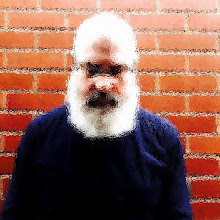Jack Smith
 Jack Smith born 14 November 1932 (d. 1989)
Jack Smith born 14 November 1932 (d. 1989)Jack Smith was an American film-maker, actor, and pioneer of underground cinema. He is generally acclaimed as a founding father of American Performance Art, and has been critically recognised as a master photographer, though his photographic works are rare and remain generally unknown.
Born in Columbus, Ohio, when he was seven his father died in a fishing accident off the Gulf Coast after his family had moved to Texas. Jack, his sister and mother lived in trailer parks until his mother remarried in approximately 1945 and the family moved to Wisconsin. When he graduated from high school in Kenosha, his parents gave him his first movie camera (8mm), which was stolen from him shortly thereafter.
He left home and moved to Chicago in 1951 and then to Los Angeles in 1952 where he begun making a 16mm film later titled Buzzards Over Baghdad. He moved to New York the following year, in 1953, where he worked as an office boy and took film classes at the City College of New York. Smith became involved in the underground film scene after moving to New York.
Smith was one of the first proponents of the aesthetics which came to be known as 'camp' and 'trash', using no-budget means of production (e.g. using discarded colour reversal film stock) to create a visual cosmos heavily influenced by Hollywood kitsch, orientalism and drag culture. His style influenced the film work of Andy Warhol as well as the early work of John Waters, and all three of them were part of the 1960s Gay Arts Movement.
Smith has also been referenced by artists such as Laurie Anderson, Cindy Sherman and Mike Kelley, filmmakers David Lynch and Matthew Barney, photographer Nan Goldin, musicians John Zorn, Lou Reed and David Byrne, and theatre director Robert Wilson.
 The most famous (and arguably the most notorious) of Smith's productions is Flaming Creatures (1962) [pictured left]. Flaming Creatures features an Arabian harem of erotically possessed creatures amid a wild bacchanalia that blurs all gender and sexual norms. Banned in 22 states of the US and four countries, the film was subject to an obscenity case that famously reached the US Supreme Court. The scandal around Flaming Creatures, made the artist determined never to complete another film. Smith would later assert the discourse about censorship and sexuality that was generated prevented audiences from appreciating its intended humour.
The most famous (and arguably the most notorious) of Smith's productions is Flaming Creatures (1962) [pictured left]. Flaming Creatures features an Arabian harem of erotically possessed creatures amid a wild bacchanalia that blurs all gender and sexual norms. Banned in 22 states of the US and four countries, the film was subject to an obscenity case that famously reached the US Supreme Court. The scandal around Flaming Creatures, made the artist determined never to complete another film. Smith would later assert the discourse about censorship and sexuality that was generated prevented audiences from appreciating its intended humour. The movie is basically a travesty on Hollywood B movies and tribute to actress Maria Montez, who starred in many such productions. However, authorities considered some scenes to be pornographic, copies of the movie were confiscated at the premiere and it was subsequently banned (technically, it still is to this day). Despite not being viewable, the movie gained some notoriety when footage was screened during Congressional hearings and right-wing politician Strom Thurmond mentioned it in anti-porn speeches.
The movie is basically a travesty on Hollywood B movies and tribute to actress Maria Montez, who starred in many such productions. However, authorities considered some scenes to be pornographic, copies of the movie were confiscated at the premiere and it was subsequently banned (technically, it still is to this day). Despite not being viewable, the movie gained some notoriety when footage was screened during Congressional hearings and right-wing politician Strom Thurmond mentioned it in anti-porn speeches.Smith's next movie Normal Love was the only work in Smith's oeuvre with an almost conventional length (120 mins), and featured a whole host of underground stars, including Mario Montez, Diane di Prima, Tiny Tim, Francis Francine, Beverley Grant, John Vaccaro, and others. The rest of his productions consists mainly of short movies, many of them never to be screened in a cinema, but to feature in performances and constantly re-edited to fit the stage needs (including Normal Love).
 Apart from his own work Smith has also worked as an actor himself. He played the lead in Andy Warhol's unfinished film Batman Dracula, Ken Jacobs' Blonde Cobra, and appeared in several theatre productions by Robert Wilson.
Apart from his own work Smith has also worked as an actor himself. He played the lead in Andy Warhol's unfinished film Batman Dracula, Ken Jacobs' Blonde Cobra, and appeared in several theatre productions by Robert Wilson.He also worked as a photographer and founded the Hyperbole Photographic Studio in New York. In 1962 he released The Beautiful Book, a collection of pictures of New York artists, which has since been republished.
After his last film, No President (1967), Smith created performance and experimental theatre work until his death on September 25, 1989 from AIDS-related pneumonia.
Until recently, Smith's archive was co-managed by New York performance artist and former Warhol superstar Penny Arcade, alongside the film historian J Hoberman via their corporation The Plaster Foundation Inc. In January 2004, the New York Surrogate Court ordered Hoberman and Arcade to return Smith's archive to Smith's legal heir, his surviving sister Sue Slater, after hearing Hoberman et al's unsuccessful arguments that the Plaster Foundation should own Smith's work. As of October 2006, Hoberman et al had yet to surrender Smith's archive, citing claims for monies due to them from the estate for time and expenses associated with managing the archive.
Profile on warholstars.org
Labels: Death from HIV/Aids, Film, Leftfield/Avant-Garde, Performance Artists, Warhol's Factory


0 Comments:
Post a Comment
<< Home